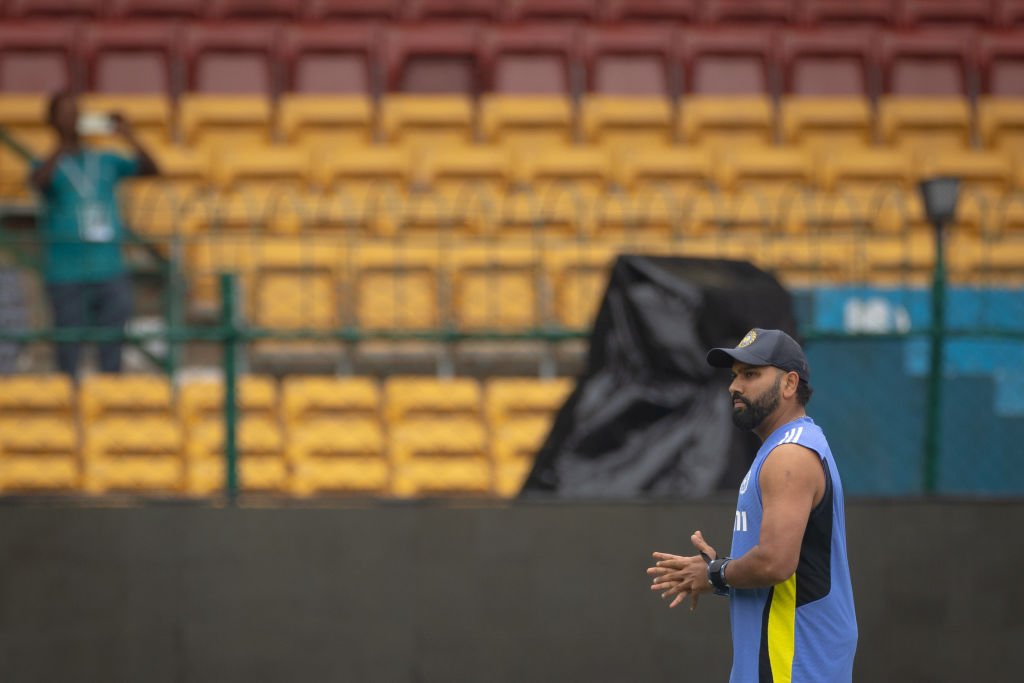
In the aftermath of India’s recent defeat to New Zealand, Rohit Sharma, the Indian cricket captain, emphasized the importance of individual plans and a calm approach to analyzing the setbacks faced. Sharma believes that India’s batsmen need to be more proactive with their strategies, drawing inspiration from the confident approach shown by New Zealand’s players.
After India’s loss in the two-match Test series, Sharma advocated for a restrained response to performance issues, avoiding the temptation for drastic overhauls. Instead, he suggested the value of one-on-one conversations to clarify expectations and guide players toward specific goals. A series loss, he explained, should be seen as a chance to refine tactics rather than make sweeping changes. Sharma trusts the potential of his players, citing India’s outstanding home record over the last decade, with victories in 42 out of 54 Tests.
Batsmen to Own Their Plans
Sharma pointed to New Zealand’s methodical approach as an example of effective planning under challenging conditions. India’s batting line-up fell short, managing only 46 runs in one innings, and struggling to adjust to the swinging conditions that gave New Zealand’s pacers a clear advantage. In his post-match comments, Sharma noted that although every Indian batsman came prepared with specific plans, they could not execute them effectively in response to the swing and seam movement on offer. He praised New Zealand’s batsmen for their composed, well-thought-out strategy and urged his team to replicate this mindset, stressing the importance of confidence in their own plans even when faced with tough conditions.
Strategic and Tactical Oversights
Reflecting on the factors that led to India’s struggles, Sharma acknowledged a misjudgment in assessing the pitch and weather conditions. Opting to bat first on a surface that had been under covers for several days, he admitted to underestimating the amount of movement the pitch would offer. Sharma noted that his team expected the pitch to ease up after the first session, allowing spinners to come into play. However, India’s decision to bat first backfired as New Zealand’s seamers, led by Tim Southee and Matt Henry, exploited the conditions brilliantly, dismantling the Indian top order.
Sharma also spoke about the difficulties players faced while adapting to the pitch’s behavior. According to him, while the team was well aware of the challenges, the quick succession of dismissals underscored how rapidly conditions deteriorated. He pointed out that many Indian players lost wickets while trying to execute aggressive shots, ultimately deviating from their intended game plans. Moving forward, Sharma suggested that maintaining focus and trusting one’s strategy will be crucial in similar conditions.
Lessons from New Zealand’s Disciplined Approach
New Zealand’s disciplined and calculated approach served as a valuable lesson for the Indian team. Notably, opener Devon Conway set the tone with a composed 91-run innings, showcasing a level of adaptability and patience that was lacking in the Indian line-up. Sharma urged Indian batsmen to focus on preparation, highlighting how an individualized plan—based on both the conditions and the opposition—can significantly improve performance. This approach, he noted, allowed the Kiwis to dominate despite the challenging environment, and it’s an approach he wants his players to embody as well.
A Nod to India’s Strong Track Record
Despite the series loss, Sharma was quick to remind fans and critics alike of India’s impressive home record. With close to 80% of Test matches won on home soil over the last decade, India’s success in varied conditions is a testament to their ability to rise above challenging situations. Sharma attributed this success to a balanced combination of aggressive tactics, disciplined play, and a versatile lineup capable of adapting to different scenarios. He emphasized that a single series loss doesn’t erase India’s long-standing reputation, and he expects the team to bounce back by staying grounded and returning to their basics.
Building Trust and Confidence Within the Team
Going forward, Sharma believes the answer lies in supporting individual players rather than overanalyzing. He has consistently advocated for a quiet, thoughtful approach to critique, focused on encouraging each player to believe in their own potential and approach the game with self-assurance. He refrained from assigning blame to any specific player or approach, instead advocating a collective responsibility for the team’s performance. The captain underscored that confidence and clarity in game plans are often what separate success from failure in high-stakes matches.
Sharma’s words reflect a broader philosophy of fostering self-belief and trust in each player’s unique style, rather than adhering to a one-size-fits-all model. His statements underscore the need for preparation and adaptability, qualities that can often make or break performances on the field. The loss against New Zealand will undoubtedly serve as a learning experience for the Indian team, as they work toward recalibrating their strategies and ensuring a stronger response in future challenges.

